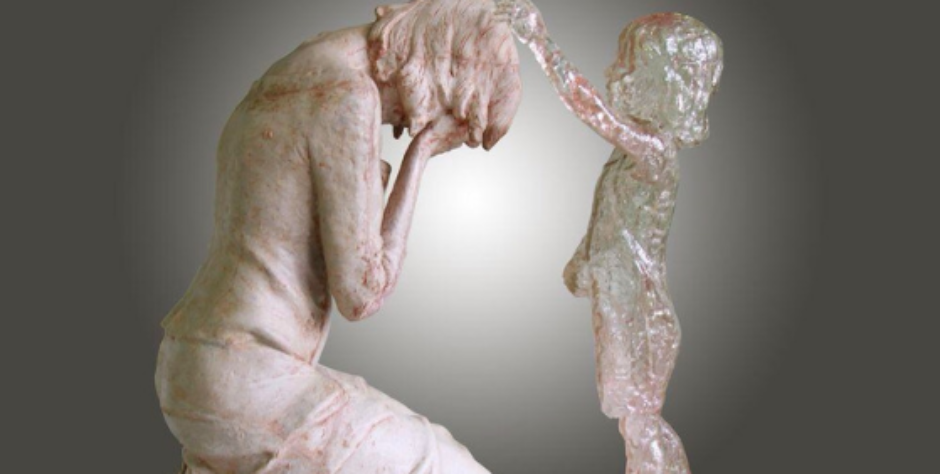This article was published in French on Aleteia on September 2, 2019. Illustration: Memorial for Unborn Children, sculpture by Martin Hudáčeka.
2019 could be the year of a legislative reversal regarding abortion in the United States, a reversal largely supported by the American Catholic Church. The American bishops are at the forefront of implementing a real strategy for the respect of human life, combining education and assistance, and could inspire the European Churches.
A federal judge in Missouri has just suspended the application of a law banning abortions after the eighth week on Tuesday 27 August, on the grounds that this law went against the jurisprudence of the American Supreme Court. In recent months, numerous states (Alabama, Mississippi, Kentucky, Ohio, Georgia, Louisiana, Missouri, Tennessee...) have passed restrictive abortion laws with the aim of having them challenged before the Supreme Court, which now has a conservative majority. The aim is to obtain the reversal of the 1973 Roe v. Wade decision constitutionalizing the "right to abortion". Even if other states (New York, Vermont, Massachusetts, Illinois, Rhode Island...) are moving in the opposite direction by increasing access to abortion, the pressure is coming from pro-life states. On July 11, a U.S. Federal Court of Appeals confirmed the new regulation prohibiting the funding of abortions by the "Title X" family planning program. The year 2019 could be the year of a legislative reversal on abortion, a reversal largely supported by the American Catholic Church.
A "pastoral plan for pro-life activities".
In his 1995 encyclical Evangelium vitae "on the value and inviolability of human life", John Paul II exhorted bishops to be the first "tireless messengers of the Gospel of life". Without "fearing hostility or unpopularity" (§ 82), he called the bishops to implement "a great strategy for the service of life" in their respective countries, in the name of "the Church's very mission of evangelization" (§ 95). Precursors, the American bishops have been developing and piloting such a strategy since 1975 and it seems to be bearing more and more fruit. This experience could inspire the bishops' conferences of Europe.
As a response to the Roe v. Wade decision of 22 January 1973, the Catholic Bishops' Conference created the National Right to Life Committee (NRLC), today the most important pro-life association in the United States. The bishops also launched a "Pastoral Plan for Pro-Life Activities" in 1975. This plan, initially focused on abortion, has been extended to other bioethical issues and now aims, as John Paul II wished, to build a true "culture of life". It mobilizes the Church's various resources towards four objectives: education and public awareness; pastoral accompaniment of persons; promotion of public policies that protect the most vulnerable; and prayer for life.
The episcopate's pro-life pastoral plan gives responsibility to the Catholic believers who each have the duty to "promote pro-life positions within their families, parishes and communities, as well as in their professional environments.” For the bishops, the efforts of the laity "deserve and need the encouragement and support of priests, deacons and religious.” The Church in the United States is set in order for the service of life, with a pro-life structure at every level of the hierarchy. State Pro-Life Coordinating Committees, Diocesan Pro-Life Committees and Parish Pro-Life Committees form a real territorial network.
Concrete actions of Parish Pro-Life Committees
At the heart of this network, the Parish Pro-Life Committee, under the authority of the parish priest, has "a vital role in parish life". Its actions are very concrete, mainly for the benefit of unborn children, pregnant women and young mothers. The parish pro-life coordinators organise collections of nappies, bottles and milk in supermarkets for mothers in precarious situations. They propose that families "spiritually adopt" an unborn child at risk of abortion during its nine months of development in utero. They organize "Masses for life", based on a model proposed by the bishops. Parishioners are also regularly present in front of abortion centres to pray and talk with the women who come there, and to promote, when appropriate, Christian services of listening and post-abortion care.
The Parish Committees also work with local candidates and elected politicians, especially during "important votes". This translates into a wide variety of initiatives: sending postcards and letters to political figures, demonstrations to raise awareness among passers-by or to ask for the closure of an abortion centre, or organising the movement of the believers for the March for Life in Washington D.C. every January 22nd, on the anniversary of the Roe v. Wade decision. On that date, the Committees organize a parallel day of prayer and penance in their parishes, at the request of the Bishops' Conference.
A model for European bishops?
The American pro-life movement has always impressed by its breadth and effectiveness. It is currently winning political victories in several states. In this country, which is nevertheless imbued with Protestantism, the pro-life action of the Catholic Church is decisive. According to sociologist Ziad Munson, 66% of American pro-life activists are Catholics (compared to just over 20% in society) and 57% are women. This commitment has even led several personalities to commit themselves for life and then to convert to Catholicism. This is for example the case of Bernard Nathanson and Abby Johnson, who had performed or participated in abortions before repenting, or Norma McCorvey ("Jane Roe") and Lila Rose.
In Europe, since the late 1960s, initiatives in defence of life have mainly been taken by lay people. In recent years, bishops have become more mobilized, for example in France, where twenty-three of them supported the last March for Life. John Paul II's encyclical Evangelium vitae has played a great role in this development, recalling the profound meaning of respect for earthly life. It "is participation in the very life of God" and its development "is enlightened by the promise of divine life and renewed by the gift of that divine life" (§ 2). Thus, could the European bishops feel fully engaged in their mission as pastors by piloting a "grand strategy for the service of life", in the image of their counterparts from across the Atlantic.














